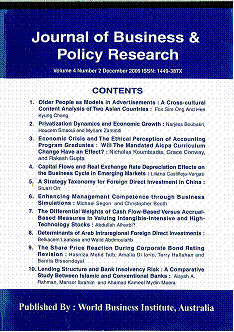Pages
64 – 78
Foreign scholarships awarded by Saudi public universities to their trainee academics are intended to provide substantial learning and capacity building opportunities for future faculty members through education and training at well-established higher education institutions throughout the world. At the same time, overseas studies are intended to provide sponsoring universities with highly qualified domestic faculty members who can help meet staffing needs, and strengthen their human and institutional capabilities. However, this investment can be successful for faculty members and universities alike only if faculty members are effectively utilised by their universities after they return from overseas and have the opportunity to apply acquired skills, knowledge and experiences. This research examines competence utilisation among foreign-trained faculty members in Saudi public universities. Using cross-sectional survey data from 566 foreign-trained faculty members from three major public universities, the research examines foreign-trained faculty members’ perceived utilisation and how patterns of competence utilisation influence important job attitudes. The results of this study suggest that many foreign-trained faculty members perceive their knowledge, skills and abilities to be not fully and adequately utilised by their universities. Moreover, poor competence utilisation was significantly negatively related to job satisfaction and organisational commitment and significantly positively related to turnover intention even after controlling for such variables as gender, age, academic rank, administrative position, and previous work experience. Some of the plausible implications of these results are briefly discussed.

